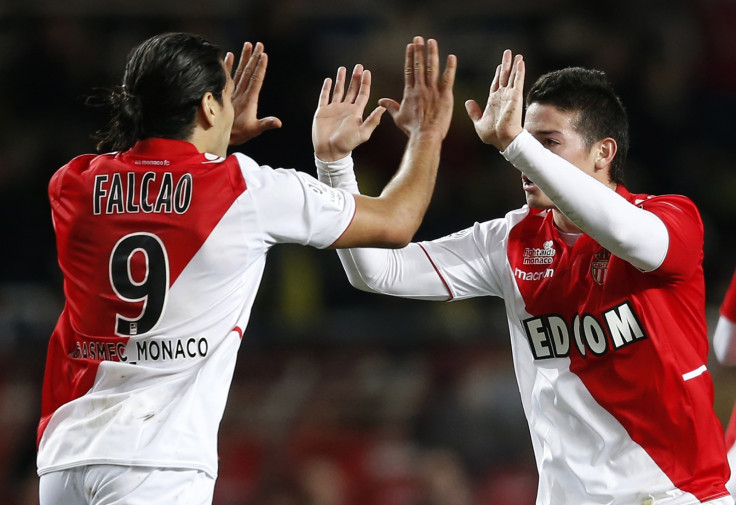Why Did Radamel Falcao Join Manchester United? – Examining Monaco's Fall From Grace

A year on from one of the most ambitious assaults on the transfer market in recent memory, AS Monaco are dusting themselves off after crashing back to reality this summer.
The latest effort to transform a club of modest history outside of their homeland into a European super-power has shuddered to a halt. Expectations in the principality have certainly been tempered and the transformation was firmly underlined by the departures of the symbols of the club's project Radamel Falcao and James Rodriguez.
Calling it an implosion would be stretching things a tad, but change has been afoot throughout the summer with Falcao's exit the culmination of this adjustment period. Such a turnaround seemed inevitable when owner and Russian oligarch Dmitry Rybolovlev, the man who bankrolled spending that exceeded £150m last summer, saw half his immense fortune (£2.6bn) awarded to Elena Rybolovlev following the most expensive divorce settlement in history in May.
The club itself had already suffered another unforeseen expense in January when they were forced to pay the French Football League (LFP) €50m in order to fall in line with the league's tax regulations to ensure the club could remain in Ligue 1.
And despite having quelled the threat posed by Financial Fair Play regulations through the sale of James Rodriguez to Real Madrid for almost double the fee they paid for him, Monaco will have been wary of the sanctions handed down to Manchester City and Paris Saint Germain.
As much as the club would have liked to have everyone believing the project was still alive and kicking after all this, their activity this summer suggests differently. The club's business in recent months lacked the ostentatious ambition that proved to be one of the summer's biggest talking points last year.
The £150m outlay that also saw Joao Moutinho, Geoffrey Kondogbia and Lacina Traore arrive last summer shrunk to a modest £21m this year. Rather than pursuing some of the game's most sought after talents, Monaco settled for Aymen Abdennour and Tiemoue Bakayoko from Toulouse and Rennes respectively for a combined fee of £19m.
One transfer that would have restored a modicum of sincerity to last summer's plan would have been the acquisition of Victor Valdes. But amid concerns over the goalkeeper's fitness following his cruciate ligament injury, Monaco pulled the plug on the deal. Would the former Barcelona goalkeeper be able to provide a return on the club's investment (in this instance, a sizeable wage package)? It would appear the club didn't think so.
In an added blow, that decision saw Eric Abidal leave the club in disgust just a day after signing a new contract at the Stade Louis II, such was his displeasure with how the club treated his former teammate and friend Valdes. Suddenly one of the games most respected figures had abandoned the club.
It has been a peculiar summer for Monaco. Vice-president Vadim Vasilyev recently assured fans the project at the club was still intact – not for the first time this summer - despite Falcao's departure on Monday. Few will have believed as earnestly as they did a year ago.
But Monaco can rest assured. The club are nowhere near the dire straits that Anzhi Makhachkala found themselves in once their bubble burst. The club who once upon a time made Samuel Eto'o the best paid player in world football were relegated from the top tier of Russian football in May after their plans collapsed on themselves. The Ligue 1 side are also likely to be more competitive than Malaga, who now find themselves adrift in mid table obscurity after their struggle to maintain admirable ambition with financial responsibility during their brief fling with European football.
Monaco are hardly back to square one. Two years ago they were beginning life in the second tier of French football. They start this campaign in the Champions League. But those lofty hopes of challenging in Europe's premier competition have all but evaporated as quickly as they once appeared.
© Copyright IBTimes 2025. All rights reserved.






















